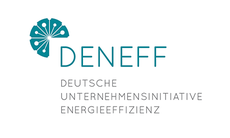Search eceee proceedings
History and prospect of voluntary agreements on industrial energy efficiency in Europe
Panel: 1. Policies and programmes to drive transformation
This is a peer-reviewed paper.
Authors:
Erwin Cornelis, (Privé), Belgium
Landry Grossin, Tractebel Engineering S.A., Belgium
Stéphane Palmaerts, Tractebel Engineering S.A., Belgium
Abstract
Many European countries have implemented voluntary agreements or long-term agreements to stimulate energy efficiency in the industry. This paper analyses the history of voluntary agreements on industrial energy efficiency in Europe and reflects on its future. This history reveals some factors influencing the deployment of such agreements in Europe. A first factor is the demonstration of good practice examples of a successful implementation of voluntary agreements, which seems to be instrumental in building enough confidence in this novel policy instrument. Second, EU legislation both has had a stimulating and inhibiting effect. Third, national circumstances have triggered the implementation of voluntary agreements in some cases. In contrast, the Global Financial Crisis did not substantially has impacted the deployment of voluntary agreements in Europe.
The analysis of the design of the different European voluntary agreements on industrial energy efficiency revealed a huge variety. No tendency to harmonize the design can be observed, apart from a gradual introduction of the implementation of energy management schemes as an obligation in most voluntary agreements.
The comparison of policy instruments implemented by countries with or without voluntary agreements has not led to the identification of some policy instruments that compete with voluntary agreements.
This analysis concludes that voluntary agreements still can have a future in Europe on the condition that there is still room to stimulate an efficient energy consumption practice in industry compared to a continuously more stringent baseline in a way that is both cost-efficient for the government and attractive for the industry.
Downloads
Download this paper as pdf: 1-001-18_Cornelis.pdf
Download this presentation as pdf: 1-001-18_Cornelis_pres.pdf















